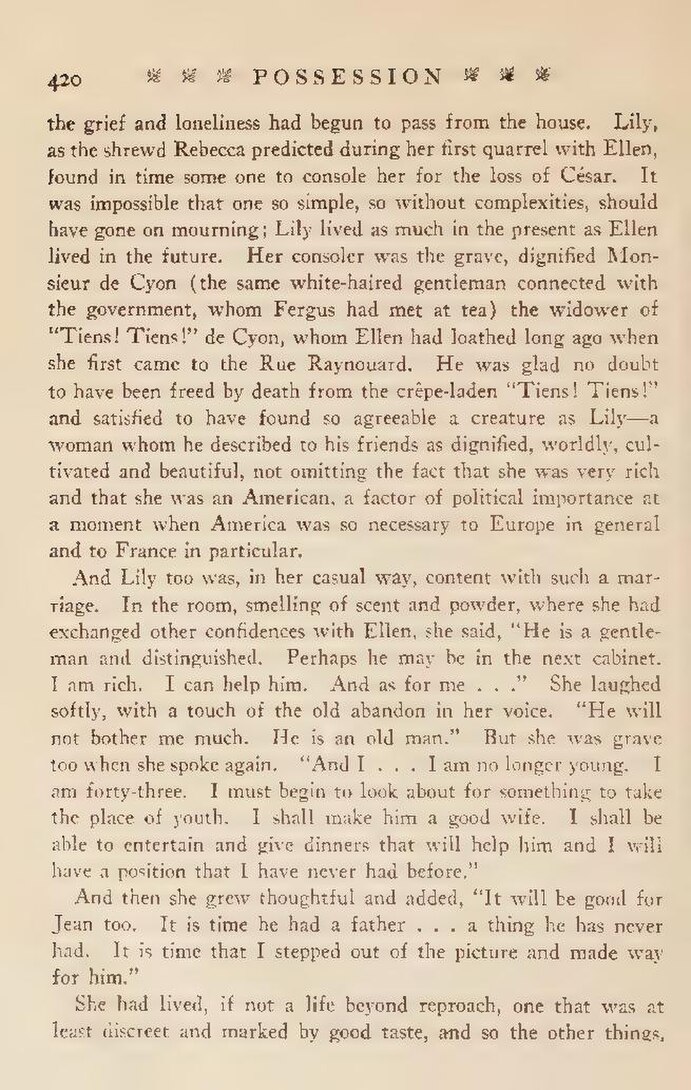the grief and loneliness had begun to pass from the house. Lily, as the shrewd Rebecca predicted during her first quarrel with Ellen, found in time some one to console her for the loss of César. It was impossible that one so simple, so without complexities, should have gone on mourning; Lily lived as much in the present as Ellen lived in the future. Her consoler was the grave, dignified Monsieur de Cyon (the same white-haired gentleman connected with the government, whom Fergus had met at tea) the widower of "Tiens! Tiens!" de Cyon, whom Ellen had loathed long ago when she first came to the Rue Raynouard. He was glad no doubt to have been freed by death from the crêpe-laden "Tiens! Tiens!" and satisfied to have found so agreeable a creature as Lily—a woman whom he described to his friends as dignified, worldly, cultivated and beautiful, not omitting the fact that she was very rich and that she was an American, a factor of political importance at a moment when America was so necessary to Europe in general and to France in particular.
And Lily too was, in her casual way, content with such a marriage. In the room, smelling of scent and powder, where she had exchanged other confidences with Ellen, she said, "He is a gentleman and distinguished. Perhaps he may be in the next cabinet. I am rich. I can help him. And as for me . . ." She laughed softly, with a touch of the old abandon in her voice. "He will not bother me much. He is an old man." But she was grave too when she spoke again. "And I . . . I am no longer young. I am forty-three. I must begin to look about for something to take the place of youth. I shall make him a good wife. I shall be able to entertain and give dinners that will help him and I will have a position that I have never had before."
And then she grew thoughtful and added, "It will be good for Jean too. It is time he had a father . . . a thing he has never had. It is time that I stepped out of the picture and made way for him."
She had lived, if not a life beyond reproach, one that was at least discreet and marked by good taste, and so the other things,
